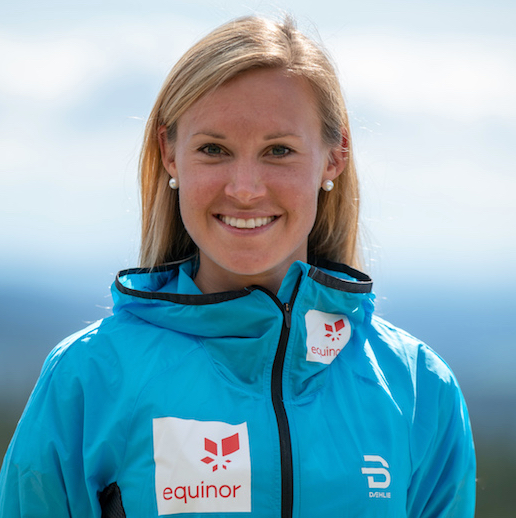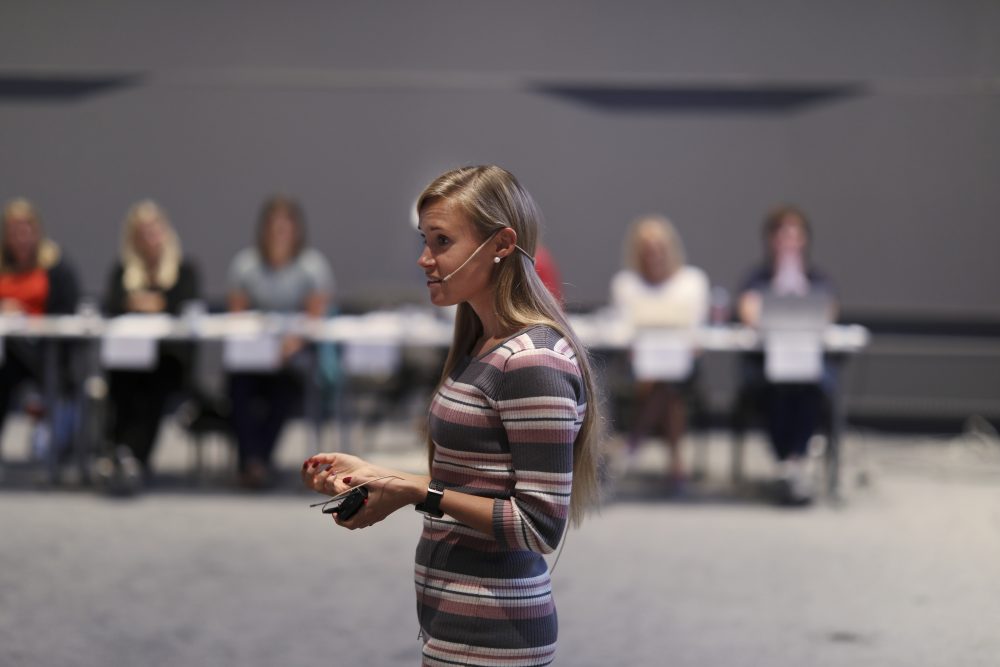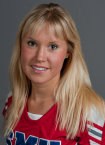
In early August, Norwegian Monika Kørra was named Norway’s national junior team coach, an under-the-radar, nordic news event that resonates. Kørra, a 29-year-old accomplished runner and cross-country athlete in Norway, comes to the job with an undergraduate degree from Southern Methodist University in Dallas, Texas, and a master’s in coaching and sport psychology, which she completed in Oslo this summer.
Kørra’s primary athletes are 12 junior skiers (six boys and six girls) that comprise Norway’s National Junior Team. Organizing camps, writing training plans, coordinating with an athlete’s club coaches, and competition travel are just a few of Kørra’s primary responsibilities. Like any coach, she’ll be the travel agent, psychologist, ski organizer, and team motivator.
Kørra is also a trailblazer along with Brit Baldishol, a longtime Norwegian Ski Federation coach and now the federation’s ski development manager. Baldishol has been employed by the federation since 1999.

“Until I was hired, Brit has been the only female coach at the higher level within skiing in Norway,” Kørra told FasterSkier in a phone interview. “And now with this position, I am the only one. The only female.”
Baldishol, having been immersed in Norway’s ski culture for decades, understands change can be slow.
“It is not equal yet,” Baldishol said of the dearth of female coaches at the elite level in Norway. “We started because I have been the junior national coach before so I know about that position. I know we can do this and our teammates can do this job. It is not that you can do a better job because you are a male. It depends on what you are looking for. For us, I think it is more important that we look for a coach that can be a good coach for different types of athletes.”
Kørra posited that women may have been reluctant in the past to take on demanding coaching positions due to the travel demands and an emphasis placed on technical ability.
“I think is what we value the most about the coaches in skiing is more the technical side of things,” Kørra said. “The way I see it is that to work with people, to see all the people, you need to be able to really communicate with them. The more feminine qualities in coaches might have been maybe not valued as much as the technical side.”
Baldishol emphasized that Kørra comes into a stable system with well-established technical norms to develop athletes.
“This is a job we have done for many years and we have this book we use for all the coaches that tells about the philosophy and what is important in Norway for being a good athlete and what we believe are the proper steps,” Baldishol explained. “We do not take shortcuts, but take it step by step for how to develop.”
Despite the time-worn and successful pathway, Norway felt a need to broaden leadership opportunities for women in skiing. Last winter, it launched a three-year mentorship program called “Skiing Leaders of Tomorrow”. Kørra was part of the initial mentee group.
“They selected 20 women to attend this program to help them reach their goals, to become leaders in the form of trainers or coaches within an organization,” Kørra said.
Baldishol, who serves as a mentor in the “Skiing Leaders of Tomorrow” program, revealed that Kørra, early on, stated she aspired to become Norway’s national junior coach.
“When this position was announced, she had to apply because everybody expected that she would apply for this job,” Baldishol recalled. “And she did it. She went all the way because she had great interviews. But we started this program because we need to have more female coaches to believe that they can have this as a full-time job.”

Growing up in Løten, Norway, Kørra became an exceptional summer and winter athlete as she matured. Her running times gained the interest of major collegiate track and field programs in the U.S., and she was offered an athletic scholarship to Southern Methodist University (SMU) in Dallas. She accepted and specialized in the 3,000-meter steeplechase, 10 k and 5 k.
“I think what drew me to the U.S. was how I was able to combine sports with school and how I saw that everyone was having a great time as a team in the U.S.,” Kørra said. “Within the running community in Norway, it is not that much of a team sport, it is more individual. That was the thing that drew me to the U.S. to run. And I had a great time, time of my life in the U.S. I don’t regret that for one second. It was a great experience.”
Kørra’s perspective on life goes well beyond sport. During her freshman year at SMU, she survived a horrific sexual assault and later wrote a book about it.
But she separated that moment from the rest of her experience living in Dallas. According to an ESPN article written about her in 2012, she loved both the school and the city.
Kørra told FasterSkier that she discovered a team ethos at SMU that she’ll apply in her role as a national-level coach.
Although still a daily runner or skier depending on the season, Kørra gravitated towards ski coaching.
“I loved how in skiing … you have all types of people, all types of body types, that can race well when they are skiing,” Kørra said of how she chose skiing. “And that is one thing that fascinates me is how different people can still be good at something.”
Norway certainly expects podiums, medals and meteoric nordic stars. That is the unrelenting pressure from the federation and the nation. When speaking with Kørra, her commitment to the whole person when considering her athletes became clear. Her core values transcend medal count. She emphasized her duty to foster adults who themselves contribute beyond just fast splits on the ski tracks.
“I think one of the most important things are my values, what I stand for,” Kørra said of her coaching philosophy. “How I focus on the fact that I want to help these athletes grow as people as well as athletes, and the way that I might choose to see everyone and I want to help everyone. I think there is a lot about my background and experience that I bring along to the job and how I love coaching. I live for it. I breathe for it. … I think I show that in coaching, and I think people value that.”
Jason Albert
Jason lives in Bend, Ore., and can often be seen chasing his two boys around town. He’s a self-proclaimed audio geek. That all started back in the early 1990s when he convinced a naive public radio editor he should report a story from Alaska’s, Ruth Gorge. Now, Jason’s common companion is his field-recording gear.



